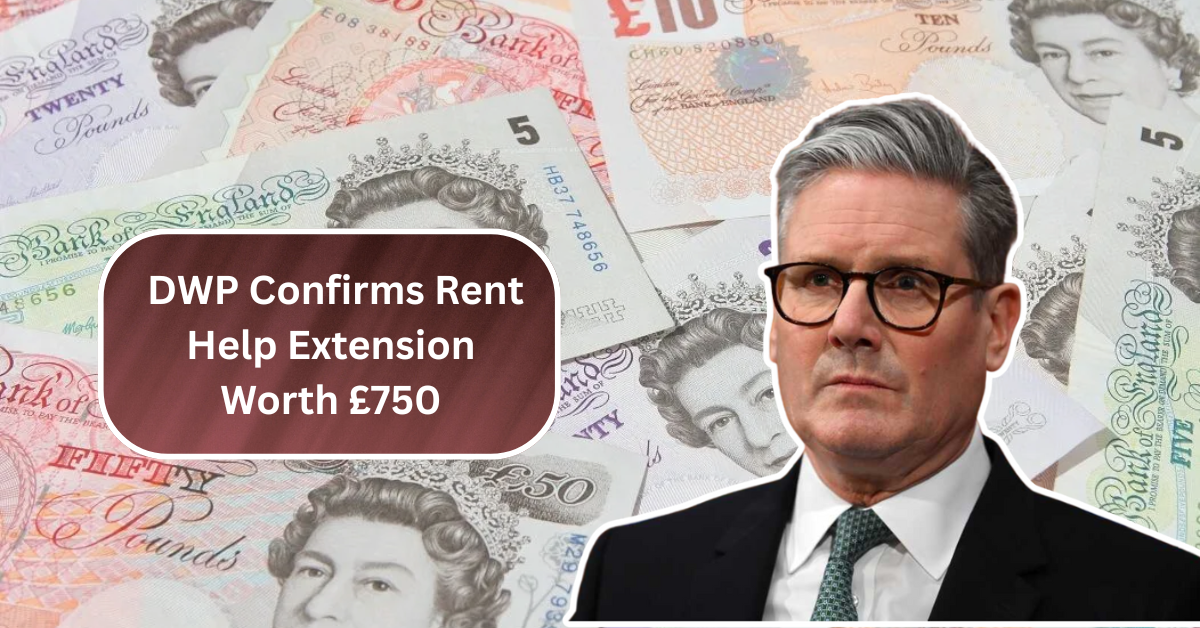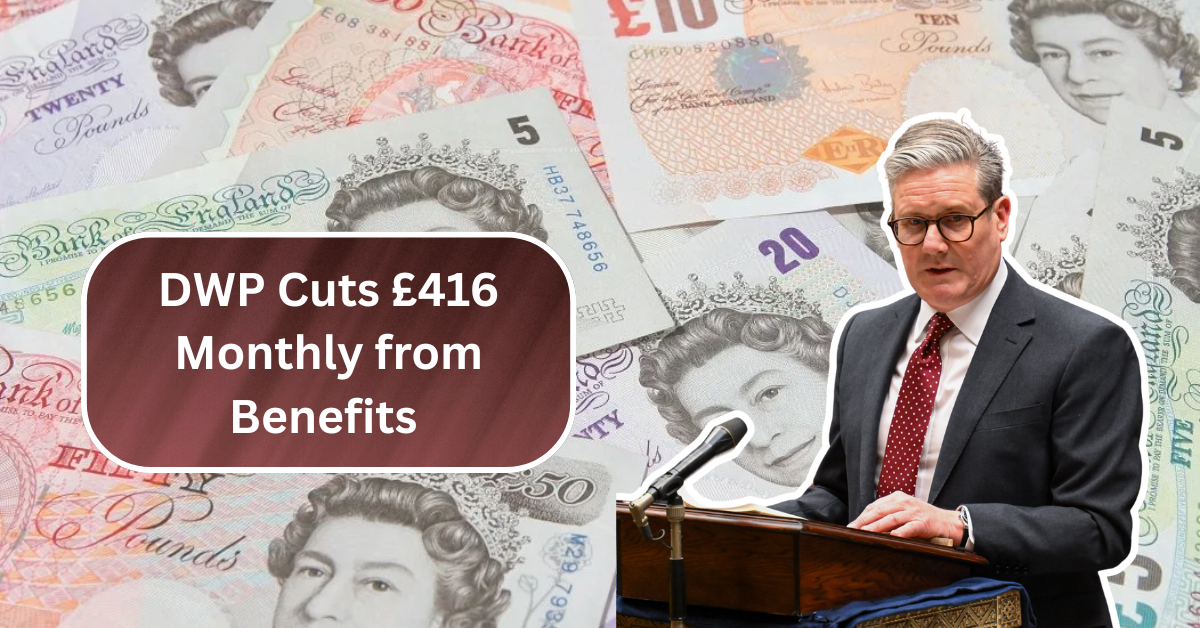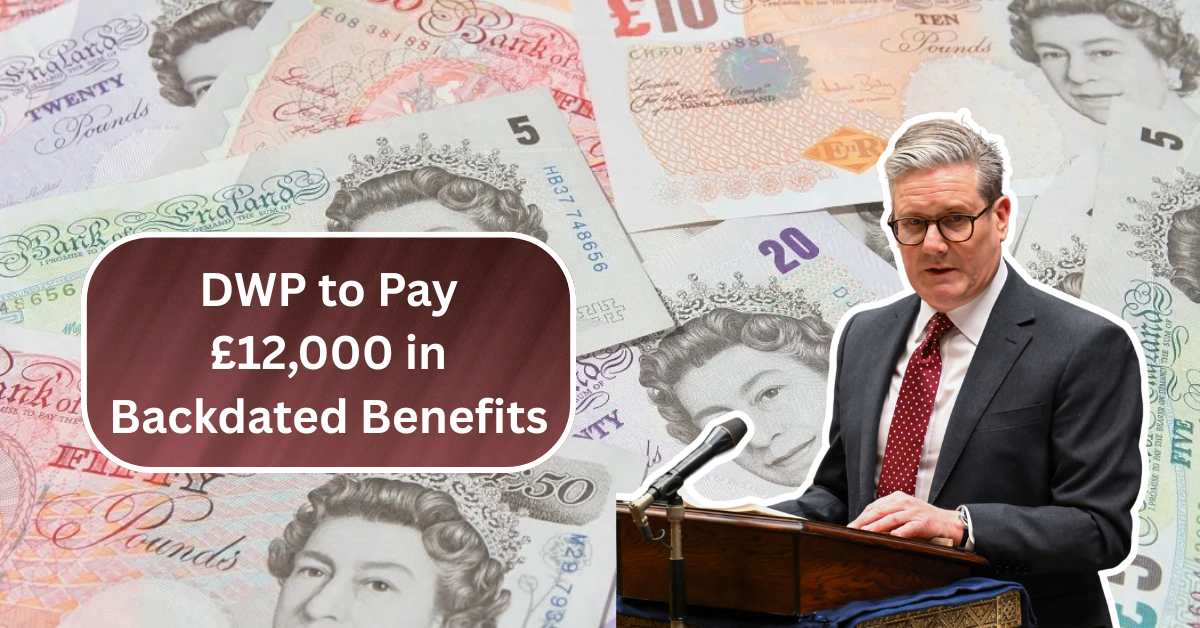The UK government has announced an important update for families and individuals struggling with rent. The Department for Work and Pensions (DWP) has extended its rent support scheme, offering up to £750 in financial assistance for those who meet the eligibility criteria. This move is part of the ongoing efforts to tackle the cost-of-living crisis that continues to affect thousands of households across the UK.
What Is the £750 Rent Support?
This Article Includes
The £750 rent help is a one-time financial aid provided by the DWP to help people cover their housing costs. This money is not a loan – you don’t have to pay it back. It is a grant aimed at helping tenants who are finding it difficult to keep up with rent due to low income, job loss, or other financial hardships.
This assistance is usually managed under the Discretionary Housing Payment (DHP) scheme, which works alongside benefits like Universal Credit or Housing Benefit. It is meant to offer extra support to those who already receive government help but still can’t afford to cover their full rent.
Why Was the Scheme Extended?
Rising costs in energy, food, and rent have made it harder for many people to manage daily expenses. The DWP decided to extend the scheme after local councils reported a growing number of requests for housing help.
According to officials, this extension is meant to provide temporary relief while long-term housing and economic plans are developed. The government wants to make sure no one is forced into homelessness just because they cannot afford their rent.
Who Can Get This £750 Rent Help?
Not everyone will get this help automatically. There are certain eligibility conditions that you must meet:
- You must be currently receiving Housing Benefit or Universal Credit (housing element).
- You must show that you are struggling to pay rent or are at risk of eviction.
- You may need to provide proof of financial hardship, such as low income, unexpected expenses, or changes in your job situation.
- You must apply through your local council, as they manage the Discretionary Housing Payment funds.
The £750 amount is not fixed for everyone. It depends on your personal situation, including your rent, income, and local housing rates. Some people may receive the full amount, while others might receive less based on what their local authority decides.
How to Apply for the Help
The DWP does not take direct applications. You must apply through your local council’s website or housing office. The steps usually include:
- Check your eligibility on the council website.
- Fill out the application form – this may include details about your rent, income, and expenses.
- Submit documents to prove your financial situation – such as payslips, rent agreements, or utility bills.
- Wait for a decision – most councils give an update within a few weeks.
If you need help with the process, local housing support officers or citizen advice centres can guide you through the application.
When Will the Payments Be Made?
If your application is approved, the payment is usually made directly to your landlord to avoid misuse and delays. In some cases, it can be credited to your account, depending on the council’s process.
The payments are meant to cover current or future rent shortfalls. They are not designed to repay old debts or rent arrears unless specified.
What If You’ve Already Received DHP Before?
Even if you’ve received DHP in the past, you can still apply again if your situation has not improved. There is no official limit to how many times you can get help, but it is reviewed case by case. Councils look at how urgent your need is and whether other options are available.
Why This Matters
For many low-income households, rent is the biggest monthly expense. Missing even one payment can lead to debt, eviction notices, or homelessness. This £750 help could offer breathing space to those trying to stay afloat.
While the government has not confirmed how long this extension will last, local councils have been advised to prioritise vulnerable groups, including:
- People with disabilities
- Single parents
- Elderly tenants
- Victims of domestic abuse
- Those recently unemployed
Final Words
If you or someone you know is struggling to pay rent, it’s important to act quickly. The sooner you apply, the higher your chances of receiving support before funds run out. Visit your local council’s official website or contact them directly to start the process.
This rent help might not solve everything, but it can offer some peace of mind during tough times. Keep checking for updates, as more government support schemes are expected in the coming months.






